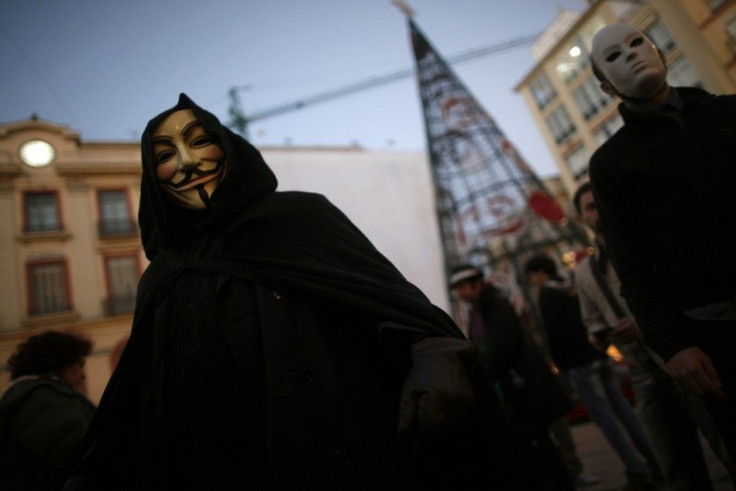Anonymous Takes on BART: Is Hacking Group Cyber Terrorists?
ANALYSIS

Has the hacking group Anonymous become so large, organized and effective that it is fair to now call the organization a cyber terrorist threat?
Last week, news focused on a splintered group of Anonymous members that planned to shut down the world's leading social network site Facebook. Some Anonymous members claimed the entire organization wasn't behind the Facebook threat, but since the group is anonymous, who knows?
Theoretically, if a hacker claims to be a member of Anonymous, then they are, since the group originated in 2003 as a group initiating civil disobedience through Internet hacking while remaining hidden and otherwise unidentified beyond the Anonymous moniker.
At this point, it appears the Facebook threat was only a hoax.
Let's hope so, since it would be a big problem, with 750 million users including millions of daily users and thousands of businesses that rely heavily upon the site. Some of us wouldn't mind, of course. Hard to complain about being relieved from so many ad-nauseum posts about grocery store visits and what somebody made for dinner.
But taking down something in the world that 750 million people used and many relied upon would seem akin to terrorism. Reasonable or not.
On a smaller scale, Anonymous, the group of hacking vigilantes is currently involved in an ongoing assault on Web sites associated with the San Francisco Bay Area's BART system. Anonymous began its cyber attack on BART on Friday, after the agency shut down cellphone service in four San Francisco stations during the Thursday afternoon commuter rush.
Anonymous' rationale for the cyber attack: A group called "No Justice No BART" had asked supporters to conduct protests at downtown stations on Thursday from platforms, demanding that BART fire an officer who fatally shot a homeless man near Civic Center station tracks.
BART officials explain that a civil disturbance, or protest, during busy commute times could lead to overcrowding and unsafe conditions. BART says it temporarily interrupted service at select BART stations as a means of ensuring safety to all. BART says the First Amendment does not extend to train platforms.
That argument is debatable. Still, that does not make it right that Anonymous hackers have entered BART's Web site, taking personal information and making it public.
That's what has happened, though.
Just more than a week ago, Anonymous took down more than 70 local law enforcement Web sites throughout the country, before making a 10 GB BitTorrent file dump containing confidential data such as informant tips, sensitive personal information and email. Also, names, addresses, credit card numbers and other sensitive information related to individual law enforcement officials was stolen and in some cases, released.
Anonymous aid in a release at the time that it was leaking "a massive amount of confidential information that is sure to [embarrass], discredit and incriminate police officers across the U.S.''
The group also said it hoped to "demonstrate the inherently corrupt nature of law enforcement using their own words'' and "disrupt and sabotage their ability to communicate and terrorize communities.''
Two wrongs, however, don't make a right.
And that's the problem with Anonymous, a losely affiliated group that nonetheless wields great power.
Often, the vigilante group has a good reason its hacking protests. Depending upon one's view of the situation, the BART situation could be one. Hacking into BART's site and sending an email invitation to attend a protest to 120,000 names found on BART's mailing list is even kind of humorous.
But at the end of the proverbial day, the hacking does constitute a violation of privacy, and a threat to public service from an important municpal agency. At this point, such vigilante hacking hasn't been a major disruption, but it does reveal an organized power that is a bit scary, for lack of a better word.
Throughout history, organizations fighting for good causes have bandied together through civil disobedience in the effort to create change. We've called them terrorists.
At this point, it's probably too early to assign that tag to Anonymous. But here's hoping we never have to give such designation to the group.
© Copyright IBTimes 2025. All rights reserved.



















